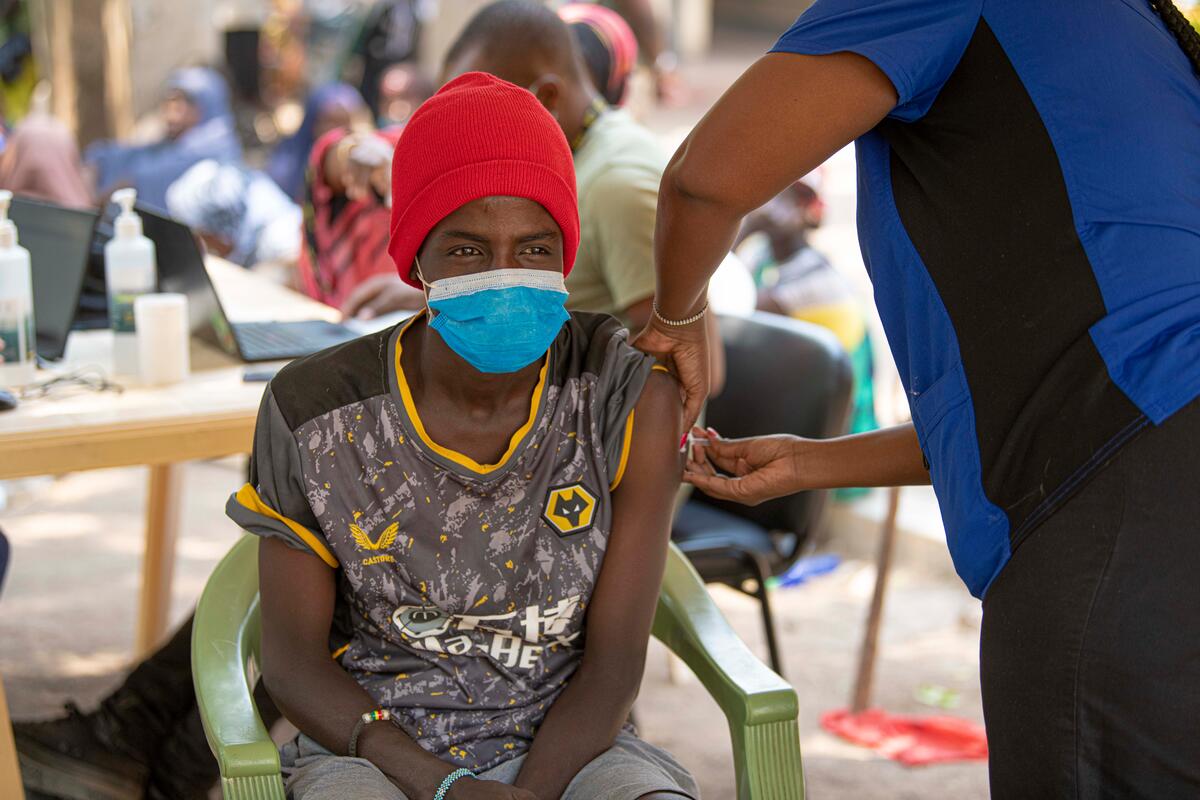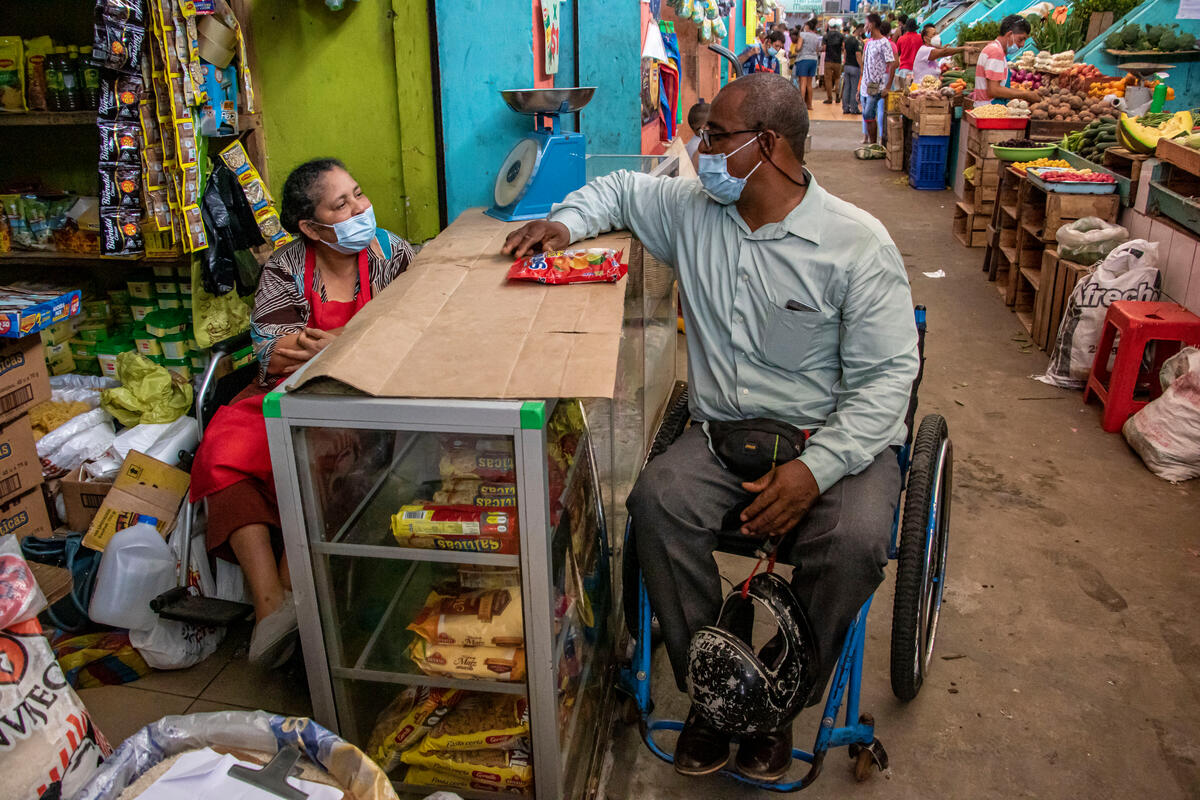In the hinterland of Darfur, UNHCR helps bring the clinic to the patient
In the hinterland of Darfur, UNHCR helps bring the clinic to the patient

MUKJAR, Sudan, December 27 (UNHCR) - For Ahmed Alnour and his family getting treatment for a fever or infection used to mean a two day journey by donkey from his remote village in south-west Darfur to the nearest clinic. Today he and other residents of this region are benefiting from a UNHCR-sponsored initiative that brings health services to isolated communities.
Each week two teams from the Sudanese Red Crescent travel by road along different routes to bring basic medical care where no services were previously available. The teams include nurses, midwifes medical assistants and trainers and over the course of a week they cover hundreds kilometers. In 2010 the clinics treated more than ten thousand people.
Alnour, who is also the head of his village's health committee, said residents covet the clinics services, which have helped to empower individuals. "These mobile teams have helped us to help ourselves by training 25 local volunteers in basic health care," he said. "The volunteers in turn have trained 150 community members on health awareness, disease, and how to deal with such problems as malaria, child feeding and nutrition."
Trained midwives, he said, have changed local attitudes with their assistance to pregnant women while saving lives. Now all pregnant women use their services.
The clinics were established in 2006 with UNHCR providing funding since this year. As well as offering medical care, the Red Crescent teams organize training for local residents. They also sponsor a three year medical course for two people from each community visited by the mobile teams. The first group graduates in the coming weeks. Thirty two midwives have been trained along the routes and in Mukjar's camps for internally displaced persons.
Serious cases are referred to the only clinic in Mukjar which is run by the International Medical Corps (IMC). There are no ambulances, so the teams provide transportation in their Land Cruisers for referral cases.
"These health clinics provide primary health care - a basic human right - to people living in remote areas, and the beneficiaries are very grateful for them," said Jean Paul Habamungu, UNHCR's Head of Office in Mukjar where the project is based. "The clinics reach far and wide and the entire rural population of Bendisi and Mukjar localities in West Darfur depend on them."
Abdallah Aghasbash is the head sheikh of an IDP community in Mukjar which has benefited from the project. In April, insecurity caused by the movements of rebel groups in the area forced Abdallah along with about 1,000 others to make the difficult journey to Mukjar from their homes about an hour and a half away along a barely passable road.
The lucky ones were able to pay the US$ 35 for a ride in a cramped truck. Those without the means travelled by foot. Abdallah arrived sick and exhausted. He was treated at the clinic and provided with free medication. The clinics' campaigns to educate people about the importance of hygiene on health had made a positive impact on his community, he said.
"The clinics' reach goes beyond just rural areas," said Ahmed Hassan of the Red Crescent Society. "For example Dambar is 84 kilometers southwest of Mukjar and the last point on route one, but even people from South Darfur come to use the clinic there. And during the dry season nomads from the Central African Republic and Chad, who spend the summer in the area, also seek out the services of the mobile clinics."
UNHCR is one of the few organisations working in the Mukjar area. By using a participatory approach to the mobile health clinics, local communities, national training institutes and national organizations are also involved. The project strengthens the ability of people to help themselves while providing essential primary health care to displaced, local and nomadic communities in this remote corner of Darfur.
Karen Ringuette in Mukjar, Sudan









